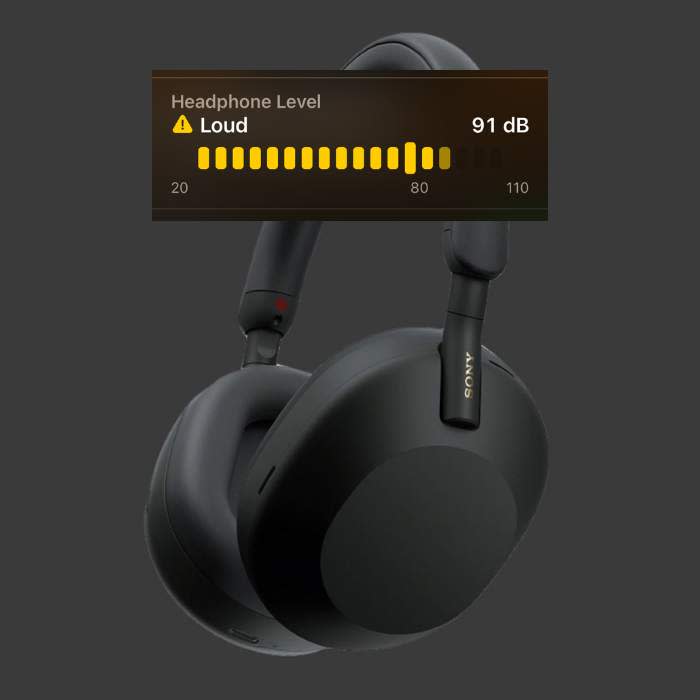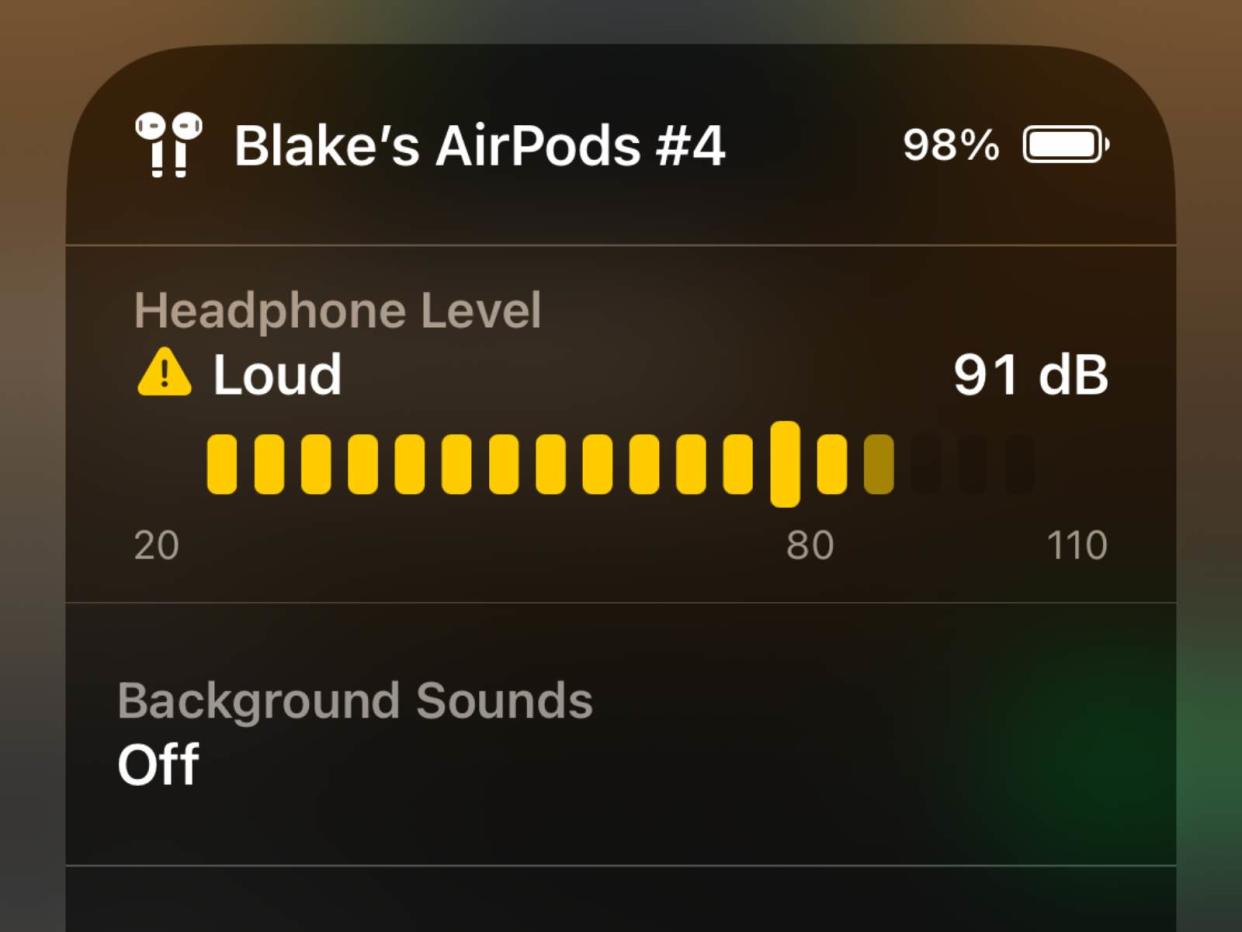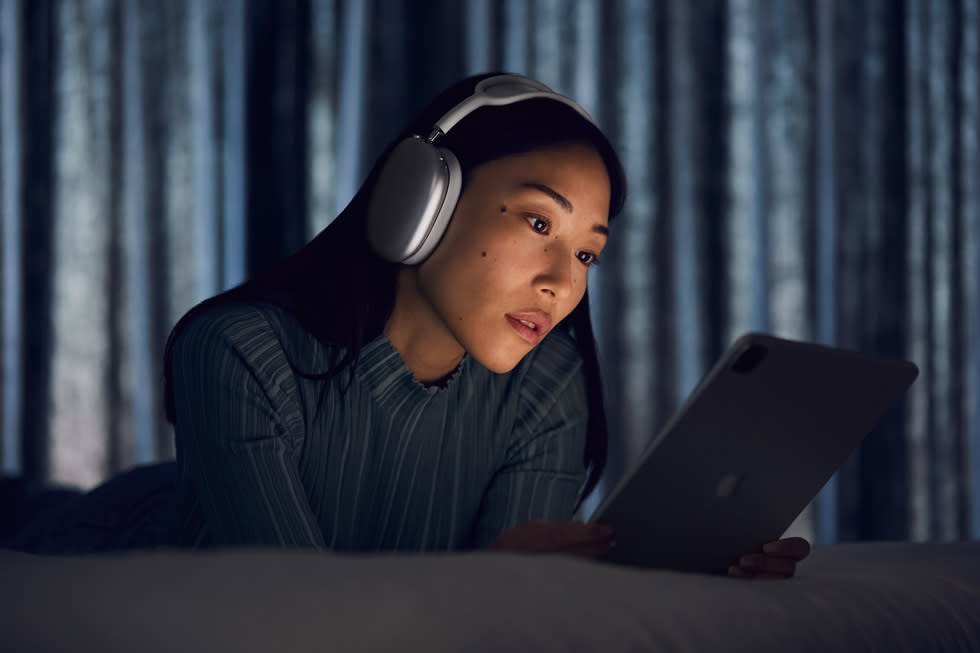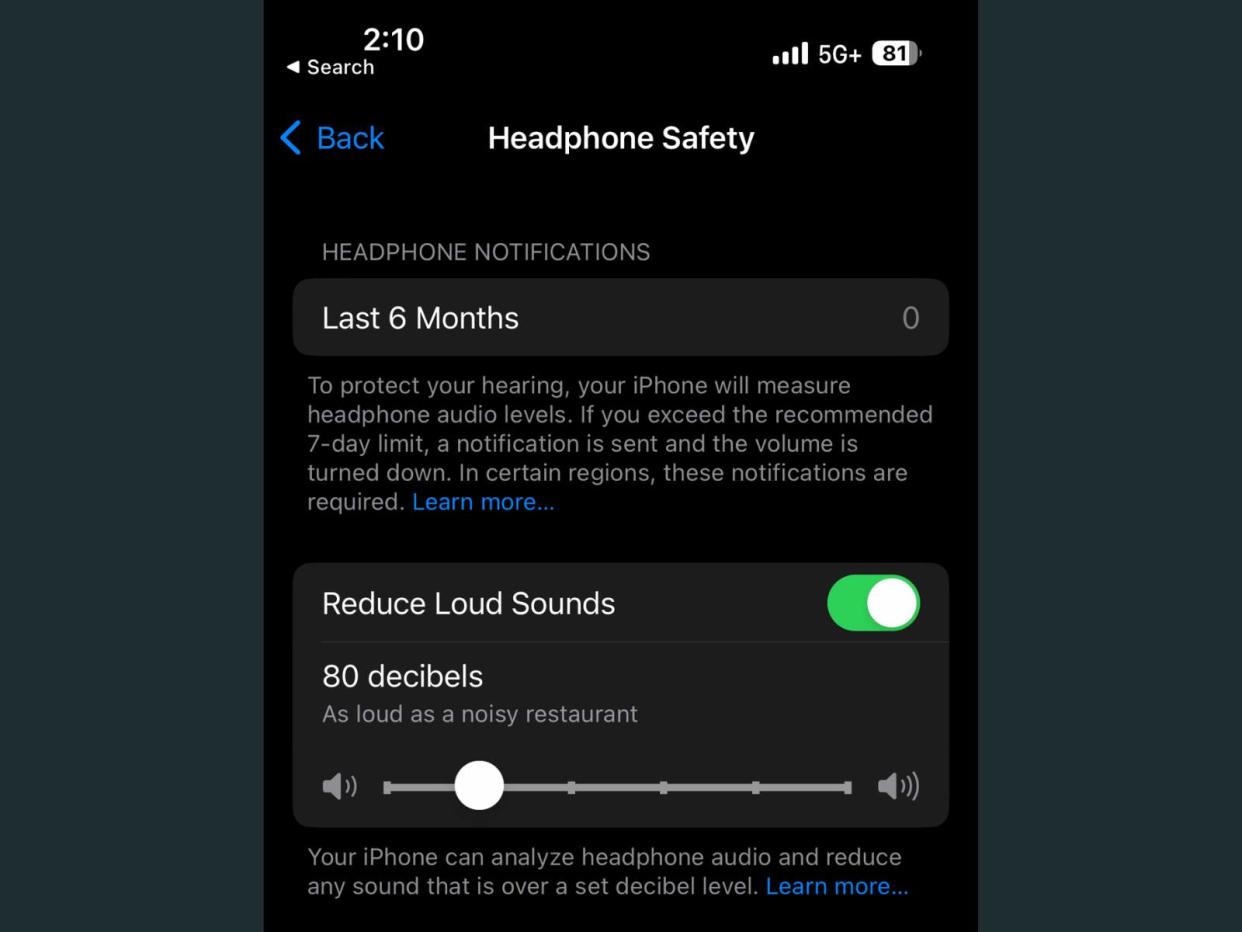How to Prevent Headphone-Induced Hearing Loss

Key Takeaways:
Many of us use headphones daily, but the headphone volume can take a toll on your hearing if the volume is too loud.
Some ways to prevent exceeding safe volume limits include: keeping your volume to 60% of the maximum volume, limit exposure above 60% of max, or keep the volume at a level that allows you to still hear people an arm's length away.
If you have hearing concerns, see an audiologist for a hearing test.

There's something cinematic about New York City set to music.
Through my early 20s, I spent a week every month in Manhattan. After a day at the office, one of my favorite activities was to put on a pair of over-ear headphones, choose a soundtrack and walk the city.
What I didn't know then was that my headphone volume might cause harm to my long-term hearing.
If you are reading this, you are probably trying to understand whether headphones can damage your hearing or the hearing of someone you love. You are in the right place. We will answer that question along with some practical listening tips below.
Practical steps to take.
Thankfully there are reasonably easy steps you can take to protect our ears and still enjoy the latest Ice Spice track.
There are a few different rules of thumb that will help:
You should be able to hold a conversation with someone 3 feet away while wearing your headphones (this does not apply to noise canceling headphones)
If you hear the music from your headphones when they are on a table or in your hand, they are probably too loud.
Avoid turning the volume over 60% when possible.
If you have an iPhone, you can manage your maximum volume, add volume alerts and see a live dB counter while you listen - our full guide here.

Over-ear headphones and noise-canceling headphones can help.

Some people assume that noise-canceling headphones or big over-ear headphones are more likely to damage your hearing. That's not necessarily the case.
While bigger headphones might have a higher max volume, they also better block background noise from our environment. You don't have to crank up the volume to overcome your surroundings.
Some of the most dangerous situations for our hearing are airplanes and coffee shops because those environments have a high natural dB threshold. An aircraft, for example, sustains 80 dB or more during a typical flight.
Eventually, your brain tunes that out, but you'll need to turn up your headphone volume to 80 or 90 dBs to overcome the baseline sound. Without knowing it, you're now listening at Coachella levels of sound.
Noise-canceling headphones and large over-ear headphones help out by blocking the background noise and letting you turn down the volume of your music to a normal level.
Headphone volume tips for parents.

Headphone safety is essential for children and teens. You have a few practical options:
Kid-specific headphones prevent volumes over 85-95 dB (depending on the manufacturer). Wirecutter has a great guide to the topic here.
iPhone users can cap the maximum volume by going to Settings > Sounds & Haptics > Headphones Safety and reducing the max volume.
Android users can download a third-party app called Volume Lock to set volume controls for their kids.
Beyond controls, it's also worth having an open conversation with your kids about how ears work and what loud noises do inside the body. The video above is a great illustration.
My daughter just turned two, but I'm already thinking about how I'll educate her on the importance of healthy listening. Well worth the time and effort.
How to know if you have hearing loss?
If you are concerned about hearing loss, you can take an online test (like this one) or visit a local audiologist. You can also get a free hearing test at Sam's Club or Costco.
One common sign of hearing loss is tinnitus or ringing in the ears. If your ears ring after you use headphones, there's a good chance you are listening too loudly. If you hear a high-pitched tone, clicking, or buzzing in general, you might be experiencing the longer-term impacts of noise exposure. See our tips for tinnitus management here.
Final Thoughts
Headphones aren't going anywhere, but our understanding of their impact on our health is changing fast. Our advice? Stay ahead of the curve by keeping your volume down and tracking your hearing health through regular tests (online or otherwise).
If you have questions for our team (including our lead audiologist), feel free to send us a note at hello@soundly.com.
